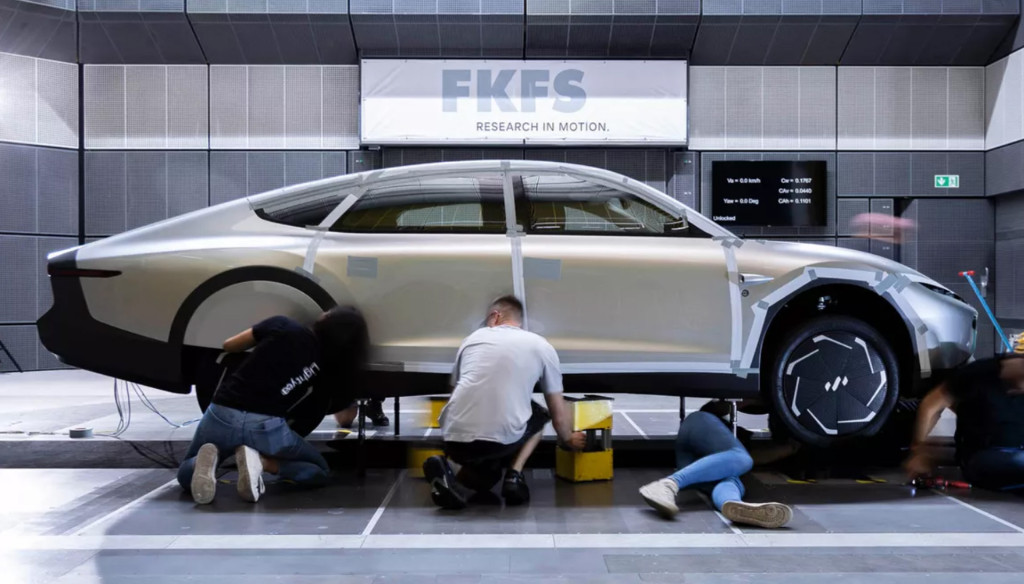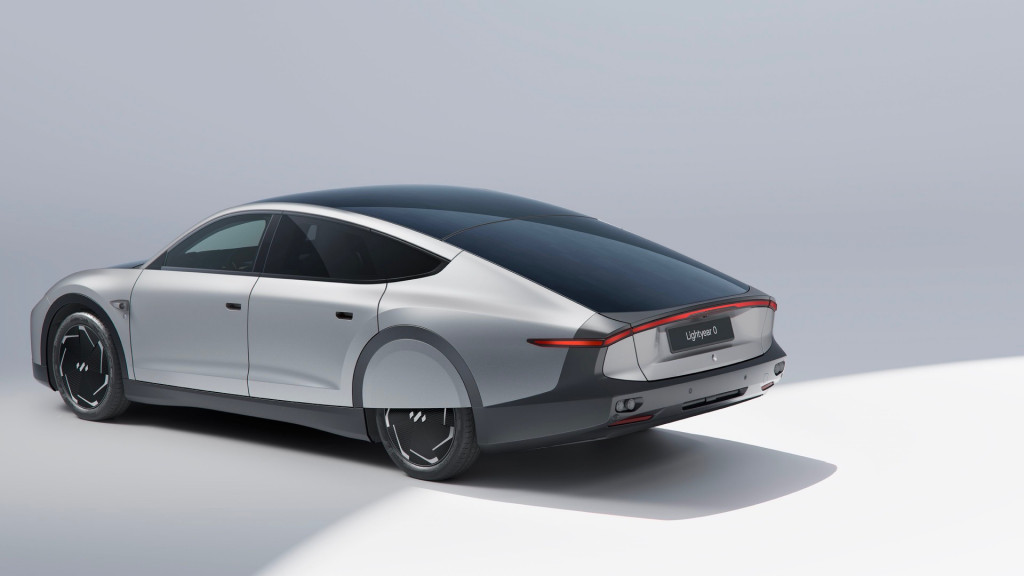Lightyear 0 solar EV nixed, as company pivots to Lightyear 2

Lightyear on Monday announced that it is halting production of the Lightyear 0 solar EV, which it has claimed to be the first production solar car in the world. Instead, the Netherlands-based company is aiming toward the production of its mass-market, $40,000 Lightyear 2 solar EV due in 2025.
“In order to safeguard our vision, we had to decide to redirect our focus and resources completely towards Lightyear 2,” the company laid out in a Monday release. “This means in effect that we had to suspend the production of Lightyear 0.”
In doing so, the company is maneuvering around what in some context might be termed a bankruptcy. Lightyear says that it will request in court that it will “open suspension of payment proceedings” in relation to Atlas Technologies, its operating company responsible for the production of Lightyear 0.

Lightyear 0 wind-tunnel testing
The Lightyear 0 is being produced by Valmet in Finland, and the companies announced a production start in early December. It’s unclear how many of these vehicles were actually produced at the time of the production halt, but Green Car Reports has reached out to the company for some perspective on whether production of that hand-built niche model had ramped up.
Valmet is also due to produce the Sono Sion, another solar EV that has strong interest, though Sono is reportedly working against its own financial barriers. That German-based company has reportedly been angling for solar fleet business as a way of sparking cash flow.
The Lightyear 0—and the inception of Lightyear—date back to the World Solar Challenge and Solar Team Eindhoven. That team’s cars, including the Stella Vie that started to take the form we recognize today, won champion titles.

Lightyear 0
The company says that it is aiming to “conclude some key investments” in the coming weeks that will enable the scaling-up of the Lightyear 2, a mass-production, affordable solar EV that will be offered to a wider audience, including reportedly in North America.
Lightyear has said that the Lightyear 2, which has strong interest already, will have a smaller battery pack than the 0, but it aims to take the same approach to “leapfrog the grid” and reduce reliance on infrastructure-intensive DC fast-charging with built-in solar panels and an emphasis on aerodynamics and efficiency.
The company hasn’t yet announced whether the Lightyear 2 will inherit the Lightyear 0’s in-wheel motors, part of what the company claims is currently the most efficient production powertrain in the world.
Although after today, that claim may be left to another company—for a couple years, perhaps.